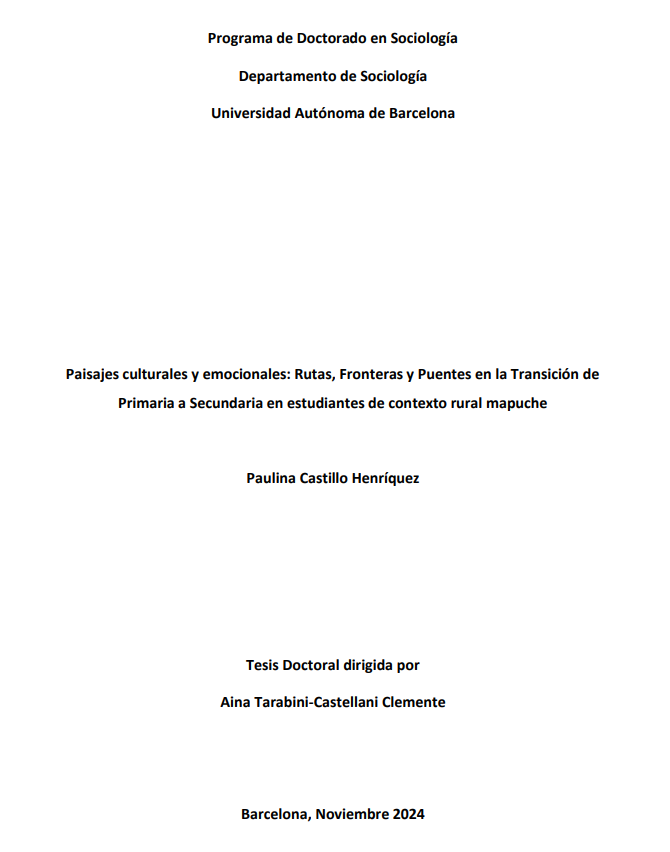Doctoral thesis defense of Paulina Castillo Henríquez
Paisajes culturales y emocionales: Rutas, Fronteras y Puentes en la Transición de Primaria a Secundaria en estudiantes de contexto rural mapuche

This doctoral thesis addresses the educational transitions from primary to secondary school made by young people from rural Mapuche backgrounds in the context of Chilean education. The study of transitions is fundamental to investigate educational inequalities, which may be conditioned both by structural factors related to the origins of the students, as well as by subjective aspects that are configured in these moments of social and cultural change, such as their experiences, aspirations and identity.
Moreover, these transitions from primary to secondary school are especially significant, since it is at this stage that the first interests and preferences that influence their future projections are configured. Likewise, families and environments can still influence the positions that children and young people develop with respect to their educational experience.
In this thesis, an analytical model is developed to know and understand structural aspects associated with families' embodied capitals - ethno-territorial habitus and emotional capital - and how these are expressed in family identities and attitudes towards education. It also seeks to understand how these habitus of origin are reflected in the identity configurations of young people and influence the experiences and aspirations that emerge in this process. In addition, narratives linked to these processes are described.
In order to know, understand and describe these aspects, a longitudinal qualitative methodology based on case analysis was implemented. This methodology incorporates various research techniques focusing primarily on the students and secondarily on their families and educational agents.
The main findings of this research indicate that embodied capitals - manifested in the ethno-territorial habitus of families - and emotional capital are key elements in the preservation of Mapuche and rural identity, as well as in the positioning that families adopt in relation to their children's education. On the other hand, the transmission of habitus and the emotional capital provided by families influences young people to develop identities that are more or less close to the ethnic and territorial, which impacts on their critical positioning in relation to the recognition of difference, the denial or minimisation of identity characteristics or distancing from the Mapuche people.
In conclusion, the bridges of continuity between family knowledge and formal educational knowledge are mainly facilitated by families, and not necessarily by educational establishments, which tend to social and cultural reproduction to the detriment of the safeguarding of ethnic and territorial elements of minority groups.
Translated with DeepL.com (free version)
Date: 05/02/2025
Hour: 15 h
Place: Sala de Grau, Fac. Ciències Polítiques i Sociologia